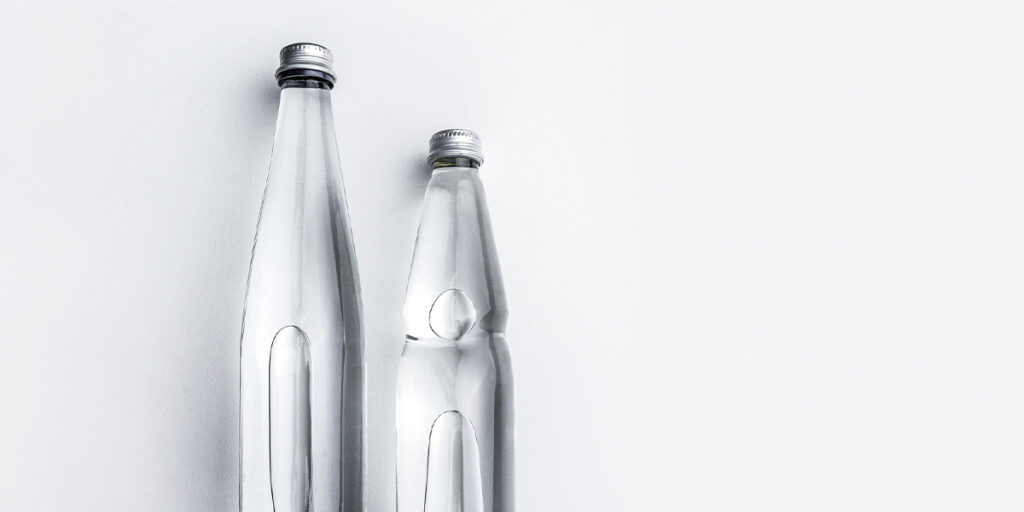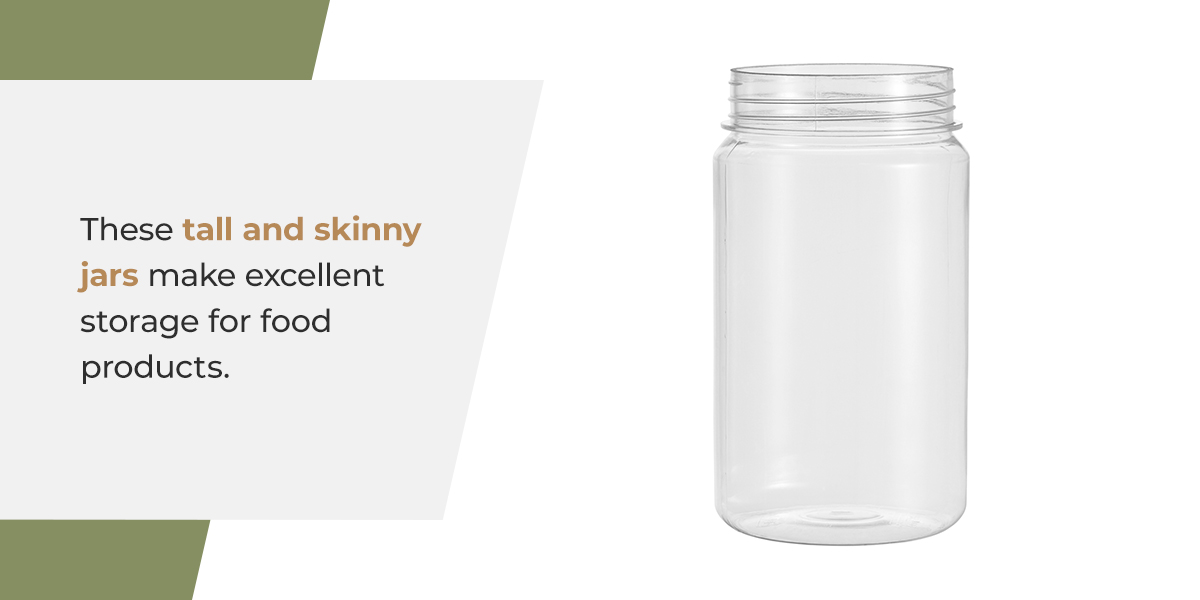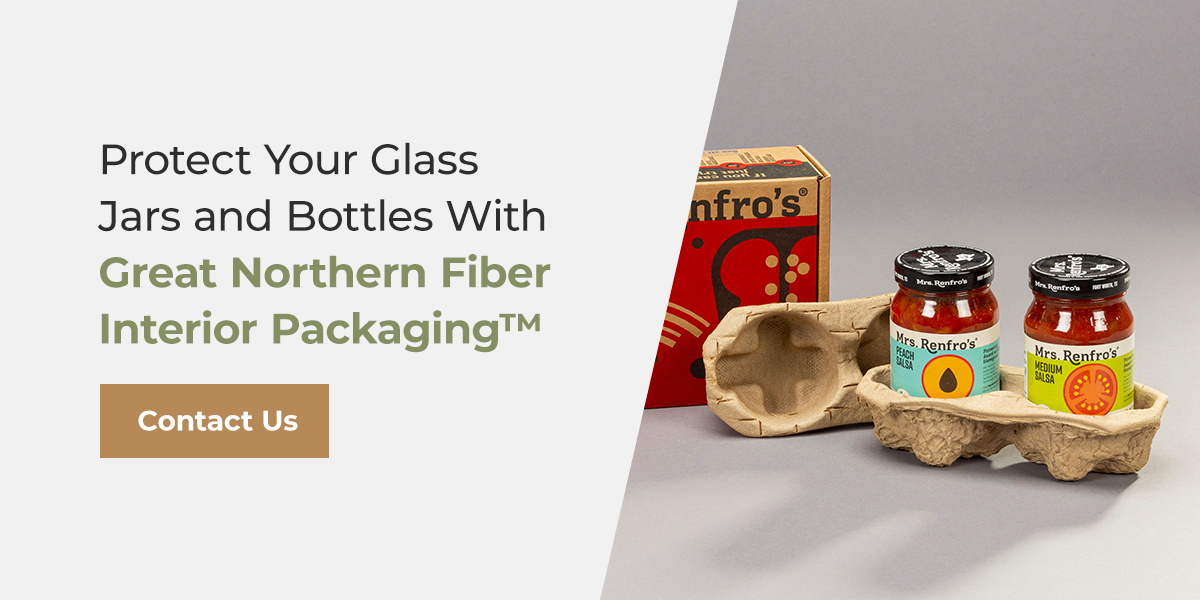
Types of Glass
US Pharmacopeia (USP) classifies glasses into different categories based on their chemical makeup. While many types of glass are available, three are best suited for bottles and containers.
Type I
Also known as borosilicate or neutral glass, type I glass is resistant to chemicals, making it a top choice for chemical laboratory equipment such as beakers and thermometers. Its most impressive quality is that it is highly resistant to changes in heat. Borosilicate glass won’t shatter when exposed to quick changes in heat.
Its heat-resistant properties are one of the reasons you’ll find this glass in Pyrex® glass and glassware. Boric acid is the wonder component that makes this glass resistant to heat. Because of the boric acid, when the glass is heated or cooled, it doesn’t expand or contract much, which keeps it from shattering.
Type I glass is ideal for packaging acidic, alkaline and neutral products. It is suitable if you need to package water for injections, sensitive products, chemicals or sterilized products.
Type II
Type II glass, or soda-lime glass, is similar to type III glass, except the process for making it involves treating the inside with sulfur. Type II glass is more resistant to water and high heat, so the contents of jars and bottles stay in their original state. The outside of type II jars are also treated, which helps protect against friction, scraping and breakage. Treated soda lime glass has several applications for consumer goods and is a good choice for food and beverage packaging.
Type III
This versatile glass is the most commonly produced type. The primary ingredients in this glass are silica, sodium oxide and calcium oxide. Type III glass also contains small amounts of magnesium, potassium and aluminum oxides. All these components add up to make up a multipurpose glass. Type III glass is relatively affordable, chemically stable and holds up well when exposed to water. These properties make it popular in several industries, from food and beverages to pharmaceutical companies.
The presence of aluminum oxide helps to improve chemical durability, making type III glass an excellent choice for bottling chemicals such as acids. A common type III glass container is an amber-tinted bottle. These bottles are tinted to protect sensitive content such as medication or alcohol from UV light.
Learn More About Our Custom Packaging Solutions
Types of Glass Bottles and Jars
There are several excellent glass packaging options that suit a range of products. Glass bottles and jars are the perfect option for your products because they are more sustainable than plastic and will maintain the integrity of your products. While most of these jars and bottles are readily available, you can also custom-make your bottles or jars.
Custom glass containers usually cost more but may be better if you have a niche brand image. While glass is more fragile than plastic, suitable protective packaging can help reduce breakage when transporting your products.
Let’s look at the various standard types of glass containers available to you.
1. Economy Round Jars
These jars are ubiquitous in the food industry and are often the jar of choice for sauces such as mayonnaise. They have wide mouths that make it easy to access the contents. They are also the perfect container for personal use, such as storing snacks and crafts.
2. Paragon Jars

3. Hex Jars (Hexagon)
This elegant, hexagon-shaped jar is exceptionally versatile. The food industry often uses hex jars to store jams, honey, chutneys, candies and spices. It’s also an excellent jar for canning. If you’re in the beauty industry, the hex jar is also great for holding candles and bath salts.
4. French Square Jars
Another favorite for food and cosmetics, French square jars are perfect for storing foods such as honey and herbs and beauty products like bath crystals. The square design means this jar fits well on shelves, and the flat square sides make labeling easier.
5. Straight-Sided Jars
These jars are among the most popular on the market. Straight-sided jars have a short neck, making it easy to scoop products out. They are also great for dipping. Straight-sided jars have many potential uses, including holding face cream, body butter and condiments.
6. Standard Spice Jars
Most people have this jar in their kitchen. Spice jars can be round or square-shaped and store various herbs and spices.
7. Roll-On Containers
In the cosmetic industry, you may need a roll-on container for specific products like essential oils or perfume. These sturdy glass containers make applying the product directly on the skin easy.
8. Boston Round Bottle (Winchester Bottle)
This versatile and sturdy bottle is popular and used for various products across different industries. The narrow neck and cylinder-shaped body make this bottle ideal for several applications. They can be used for products that require a screw top, eyedropper or pump. The pharmaceutical, health and body industries often store chemicals and other cosmetic products in this bottle. In the food and beverage industry, drinks such as kombucha store well in this bottle.
9. Long-Necked Bottles
You can use long-necked bottles to store wine, beer, hot sauce and cooking oils. These bottles are everywhere in the food and beverage industry and are often the bottle of choice for poured products.
10. Euro Bottle
Similar to the Boston round bottle, this bottle has a narrow neck and broad base but is used for smaller quantities. This bottle is popular in the beauty industry for cosmetics that require dropper caps to control the liquid’s release.
Protect Your Glass Jars and Bottles With Great Northern Fiber Interior Packaging™






